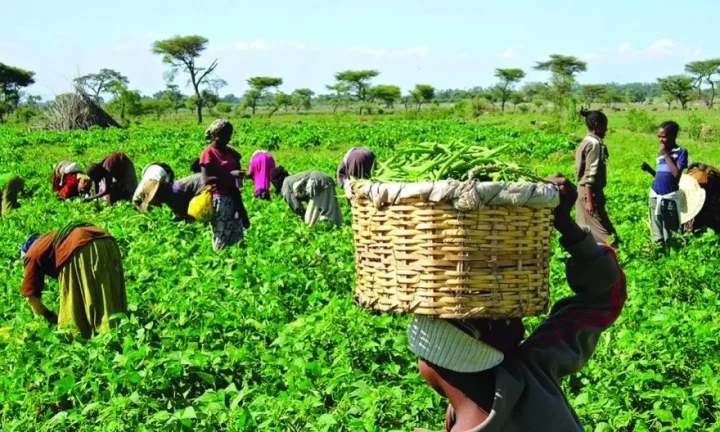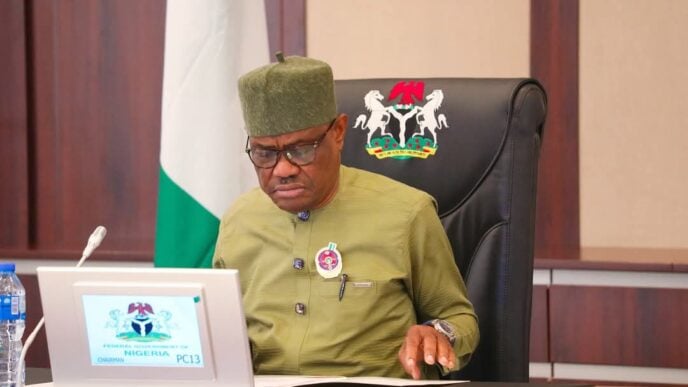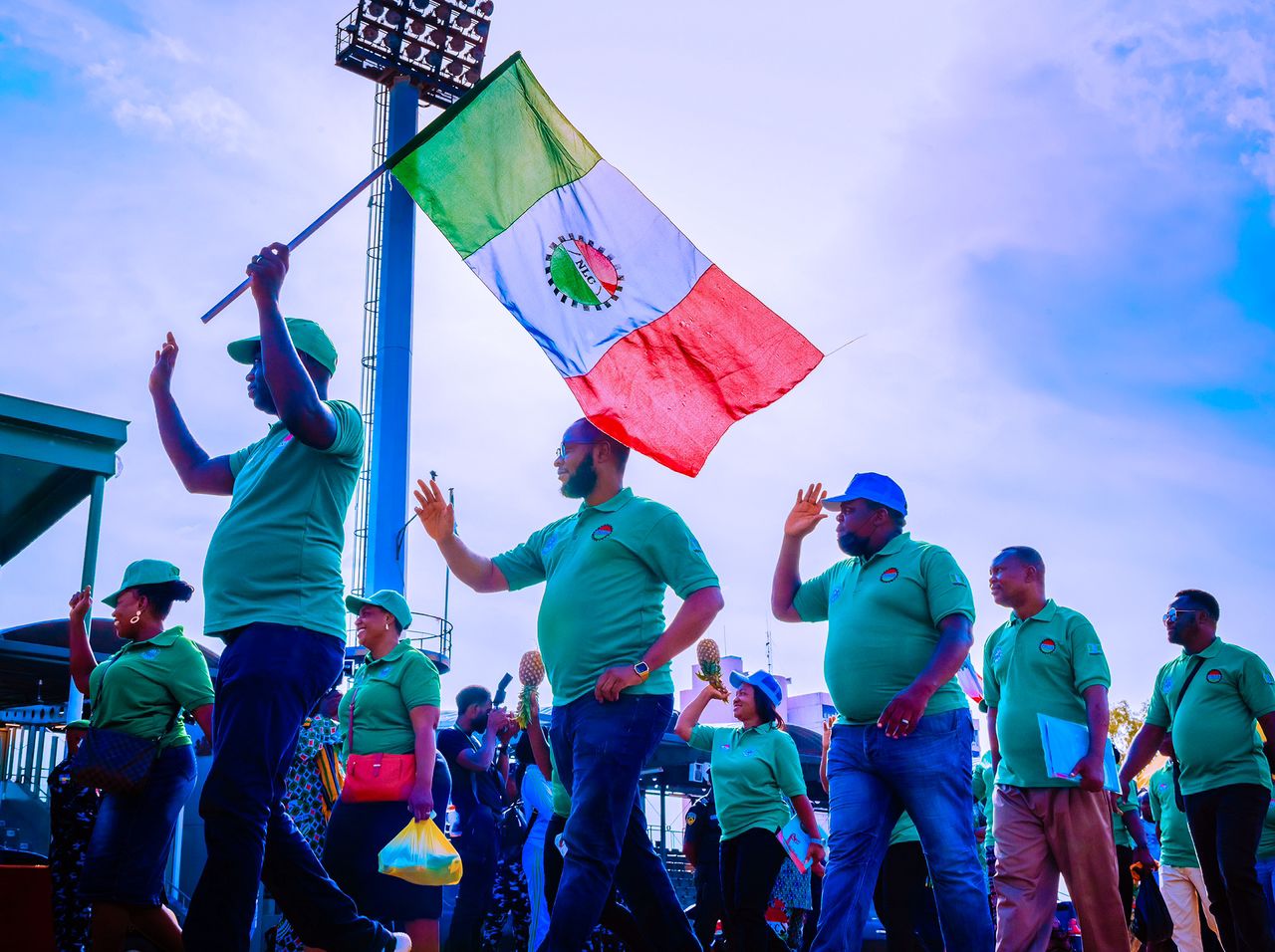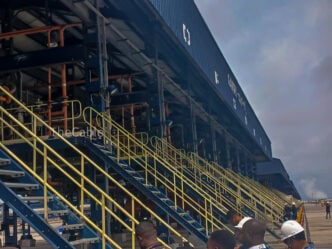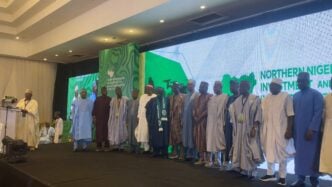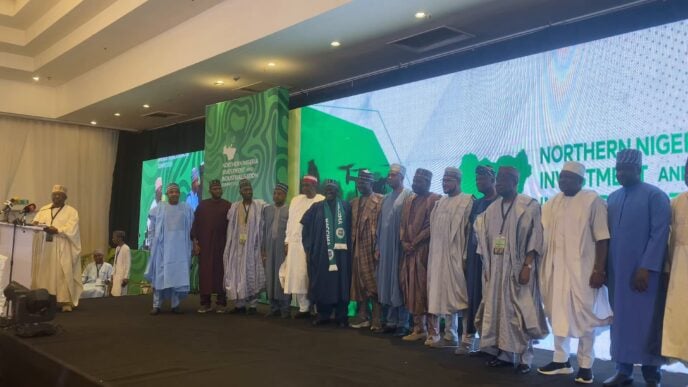BY PELUMI SALAKO
At this year’s International Government Communication Forum (IGCF), hosted by the Sharjah government from September 10 to 11, 2025, experts from all over the world came together to discuss salient development topics on sustainability, water, food security, food systems, and solutions to global crises.
One of the esteemed guests is Professor Gary Burnsike, the managing director of the Center for Global Food Security at Purdue University in the United States. He is a specialist in global food security with a technical focus on sustainable agriculture, food supply chains, and smallholder agricultural business development.
On the first day of the summit, I met up with him and asked a range of questions, including one of the burning topics dominating the Nigerian airwaves these past few weeks, which is the adoption of GMO food for widespread planting and consumption in Nigeria. For many who do not have informed knowledge, they summarily assume it is highly dangerous. But is it really dangerous?
Advertisement
Burnsike said there is no scientifically backed evidence that it is detrimental. Because of its ability to yield in unfavourable conditions, some experts say it might be a key to solving food insecurity crises in some countries like Nigeria, where the government declared a state of emergency over food insecurity.
“I certainly don’t think GMOs, in most instances, are the best options for small farmers in Nigeria or Sub-Saharan Africa,” Burnsike said, adding that GMOs may be better off in some mechanised agricultural schemes. “And definitely, they present some challenges for smallholder farmers, particularly in sourcing seeds. So, no, GMOs will not resolve the world’s food security problems. They may contribute, in certain circumstances, to helping out.”
Smallholder farmers play a crucial role in the food production chain, contributing 70 to 80% of food in many developing countries. But in some cases, their efforts are overwhelmed by climate events like flooding, drought, infestation, or conflicts, etcetera. When something like this happens, the farmers suffer, and the effect trickles down to the population they serve.
Advertisement
For the world’s food security issue to be solved, the smallholder farmer has to be supported, Burnsike agrees. He said, “What they need is assistance in terms of improving the quality of the types of crops they’re producing and helping link them to markets, and perhaps they may need access to imports, including finance, so that they can be more productive and more actively participate in food supply chains.”
The dynamics of farming are changing as fast as the world is changing. Farmers in advanced countries regularly leverage technology to achieve better production at different stages, which is not the case in most developing countries. He said access to more technology by smallholder farmers can improve their activity in food security.
“And that may be through having access to, for example, information on short- and long-term climatic conditions; it may be providing smallholder farmers with marketing trends and forecasts for what the demand for different types of products would be so that they can make a decision on what types of crops to produce and where to market them,” he said. But aside from access, another great barrier is literary and technical know-how.
The world’s refugee population maintains an upward trend with continuing crises across different regions of the world. And this means civilians caught in the mix need humanitarian assistance in the form of food, especially.
Advertisement
Burnsike said food assistance is best placed by actually providing cash and resources to buy food either locally or regionally, so the logistics could be easily worked out, and the food itself can fit the cultural palate of those at the receiving end. But peace is cheaper than any humanitarian assistance possible. Although the causes of conflicts and crises vary, he believes that negotiation between conflicting parties is a potent silver bullet.
Since the start of the year, funding cuts have dominated discussion in development forums across the world. The United States has deeply cut its global philanthropy through its aid-making agency USAID, through which it contributes 40% of global aid funding. Members of the European Union have moved in a similar direction, and this has left the global south, the main beneficiary, feeling the impact across critical sectors, especially health and education.
To plug this giant gap, Burnsike said the private sector can play an important role by stepping up as traditional funders look inward. Although it is not one size fits all, it is definitely a solution that can turn out great.
“It is going to take some time for development assistance to sort through… and establish a new paradigm in how developmental assistance will be delivered. There are a lot of different trends that are starting to resurface. But how they shake out in the end. It’s going to take a lot of time,” he said.
Advertisement
Views expressed by contributors are strictly personal and not of TheCable.
